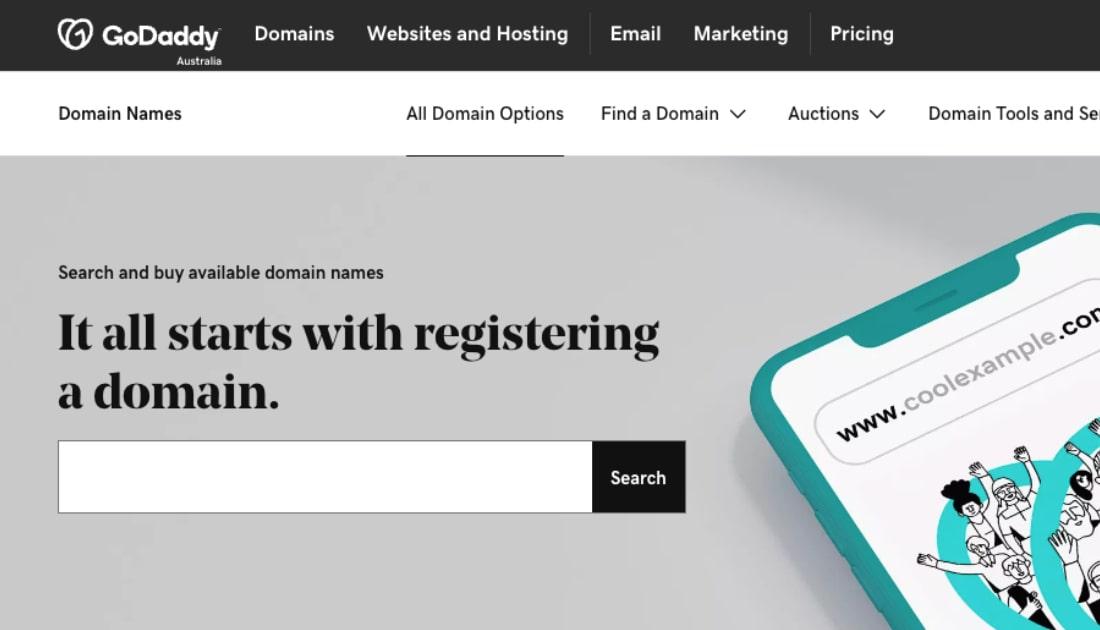In the hustle and bustle of our modern lives there is an undeniable yearning for something more than just a paycheck at the end of the month. We're looking for fulfilment, purpose and meaning in our jobs. This thirst for meaningful work goes beyond simply earning a living.
It's about finding that connection between what we do, who we are and our deeper life's purpose.
So, what exactly is meaningful work?
At its core it involves:
- Engaging in tasks or professions that align with our values and passions
- Making a positive impact on others and society as a whole
Meaningful work brings satisfaction at the end of the day but also an intrinsic sense of purpose that fuels us to keep going.
- Jobs that have meaning built in
- Why we search for meaning
- The 3 pillars of meaningful work
- The benefits of meaningful work
- The contrast: Meaningful work vs. drudgery
- Entrepreneurship and beyond
- Finding your meaning outside of work
- The 5-step path to a meaningful working life
- Embracing the journey
- Frequently Asked Questions
Jobs that have meaning built in
Many professionals are driven by a deep sense of purpose, especially those in healthcare professions like doctors and nurses.
This is also true of fields where helping others is part of the everyday job, like teaching.
Despite how hard some of these jobs might be on a daily basis, seeing the difference their work is making to the lives of their patients and students makes them rewarding.

But you don’t need to be saving lives or educating future generations to find meaning in your work.
While the experience of meaningful work means something different to everyone, it comes down to finding things in your work that make you happy and fulfilled.
This might be from having:
- Creative or time freedom
- Flexibility to enjoy other things in life, like surfing, long weekends or time with family
- A say in how you organise your day and tasks
There are three key qualities that all meaningful work shares: safety, teamwork and purpose.
Feeling safe in a workplace environment allows creativity to flourish without fear of failure or judgement by supervisors or co-workers.
Teamwork means collaboration, mutual support and shared goals. These are all vital elements that enhance our sense of belonging and personal growth within an organisation.
And finally, purpose gives us direction. As an example, GoDaddy’s stated purpose is to “radically shift the global economy toward independent, entrepreneurial ventures.” This vision energises employees, who believe their work is contributing to the greater good.
Having meaningful work connects us to something greater than ourselves and motivates us to do better every day. More on this later.
Related: 25 side hustles to consider starting
Why we search for meaning
Exploring the meaning of work isn't just an exercise in philosophical pondering — it has practical implications too.
Studies have shown that people who engage in meaningful work have:

- Higher levels of job satisfaction
- Greater productivity
- Better mental health
- Stronger professional relationships
It's a win-win situation, where both employees and employers reap the benefits.
What is meant by meaningless work?
Amidst the pursuit of life meaning at work, we can sometimes find ourselves stuck in jobs that seem without purpose.
Meaningless work is any task that leaves us feeling unfulfilled, unchallenged and cut off from our values.
But here's the key: recognising the distinction between meaningful work and drudgery allows us to make informed decisions about our career paths and seek alternatives that align with who we are.
The call of the wild

Finding meaningful work is an ongoing journey — one that requires introspection, exploration and perhaps even a dash of audacity.
For those who are daring enough to take the leap, working for yourself can mean creating a business centred around your passions and values. For many this is the ultimate example of job-crafting.
"It’s important to understand that meaningful work means different things to different people” says Nina Mapson Bone in CEOWORLD magazine “and can change with shifting life stages, as well as a rapidly changing environment, such as one caused by a pandemic!"
New research from GoDaddy reveals that one in four Aussie side hustlers start a business in order to launch a dream career. Another 17% launched their gig because they wanted to achieve more flexibility in their lives.
Editor’s note: Working for yourself? GoDaddy can help set you up with its free logo maker, free website builder and productivity tools like Microsoft 365.
The 3 pillars of meaningful work
At a time when the future of work is being widely discussed, it's useful to understand the three elements that make up meaningful work.
As I mentioned before, these are the three ingredients needed for personal growth, job satisfaction and a sense of fulfilment:
1. Safety
This includes physical, mental and emotional safety, as well as the sense of belonging and trust that allows people to express themselves without fear of ridicule or retribution.
Giving employees permission to voice opinions, take risks and make mistakes without judgement encourages out-of-the-box thinking.

To achieve a culture of safety within organisations, leaders must:
- Open communication channels
- Encourage employees to share their ideas freely
- Actively listen to workers’ concerns
Some companies even offer training programs that promote emotional intelligence and conflict resolution skills for better teamwork.
2. Teamwork
When individual contributors come together with shared goals and mutual support, they are able to harness the collective intelligence.
Successful teams value diversity, welcoming different perspectives, backgrounds, skills and experiences. This diversity creates fertile ground for innovation and often leads to fresh ideas and new approaches.
Fostering a dynamic where everyone feels valued and can contribute enhances the overall creativity and satisfaction among co-workers.
However, teamwork doesn’t happen effortlessly — it requires intentional effort from both individuals and leaders.
Strategies such as regular team-building exercises or cross-functional projects can help foster connections among team members.
Recognising individual contributions openly while promoting teamwork develops a strong sense of camaraderie that strengthens the sense of meaningful work.
3. Purpose
This has to do with linking our work to something greater than ourselves.
Purpose stems from seeing the impact of our work, whether it's positively affecting individual lives or society as a whole.
It is the driving force behind our motivation, resilience and job satisfaction.

Employers can create purpose-driven work environments by clarifying the organisation’s mission and values.
When employees can see how their roles align with these guiding principles, it adds significance to their daily tasks.
Regularly sharing stories that show the positive impact of the group's work reinforces the shared sense of purpose among employees.
Leaders should encourage self-reflection to help each team member connect their individual goals to the broader organisational mission. By thinking back on the last weeks or months, individuals can understand how their contributions are woven into the larger tapestry of the group.
Safety, teamwork and purpose are not isolated, but interconnected aspects that support and build on each other when they’re planned for and encouraged.
Organisations that prioritise these elements create an environment where employees feel valued, supported and engaged. As individuals thrive within such an ecosystem, they become more likely to actively seek opportunities for growth and contribute meaningfully to their teams’ objectives.
If you’re searching for more meaningful work, look for employers who embody these pillars.
For those running their own ventures, consider how you can foster them within your own teams to increase employee engagement.
Related: Craft a powerful mission statement in 4 steps
The benefits of meaningful work
In a world consumed by the pursuit of success and material wealth, the importance of finding meaningful work cannot be understated.
Beyond monetary compensation, meaningful work gives us a deeper sense of:
- Purpose
- Personal satisfaction
- Overall well-being

The meaning attached to work isn’t universal. Each person builds their own meaning from what they do, who they work with and the sense of purpose they get from their work.
Everyone wins when work is more meaningful
One of the primary reasons why meaningful work holds such significance is its impact on a person’s overall happiness and fulfilment.
When we engage in work that aligns with our values, interests and passions, we experience a profound sense of purpose.
This sense of purpose:
- Fuels our motivation
- Makes us more committed to our roles
- Fosters an intrinsic drive to make a positive impact
Safety at work, teamwork and purpose top the list of things Aussie workers value, according to the 2023 Meaningful Work Insights report from Beaumont People. In fact, 70% say they would leave a workplace that wasn’t safe.
Other studies show that those who find their work meaningful report higher levels of happiness, contentment and job engagement.
This satisfaction translates into higher productivity as employees are willing to commit to their tasks wholeheartedly.
When individuals feel connected to their work on a deeper level, they are more likely to demonstrate resilience in the face of challenges and setbacks. The intrinsic motivation that comes from knowing that their work matters gives them the strength to overcome obstacles.
Meaningful work also enhances employee well-being on multiple levels — mentally, emotionally and physically. Those engaged in meaningful work:
- Experience lower stress levels and decreased rates of burnout compared to those stuck in unfulfilling jobs
- Are less likely to have health problems associated with chronic stress, such as cardiovascular issues, or mental health challenges.
How employers benefit
But it's not just workers who benefit from engaging and meaningful work. Businesses reap significant rewards as well.
Productivity boost

A workforce driven by meaning is a productive one, as people who find life purpose in their roles are more likely to go above and beyond expectations to help achieve the group’s goals.
Their commitment leads to improved employee retention rates as they become loyal ambassadors for their companies.
Better work product
Additionally, organisations that prioritise meaningful work often build a positive culture marked by collaboration, creativity and innovation.

Employees who find their work meaningful are more likely to:
- Share ideas openly
- Engage in proactive problem-solving
This behaviour stimulates creativity and fosters a sense of camaraderie as individuals work together towards a shared purpose.
More highly qualified applicants
Offering opportunities for workers to engage in meaningful work can also help attract higher-quality talent.
In today's competitive market, people are choosing workplaces that value their contributions and provide environments where they can thrive beyond their day-to-day tasks.
The importance of meaningful work cannot be overstated — for individuals and organisations.
Meaningful work:
- Provides a sense of purpose
- Leads to increased job satisfaction
- Promotes overall well-being among staff
It instils motivation and resilience while contributing to higher levels of productivity and employee retention rates. Businesses that foster an environment where meaningful work thrives reap the benefit of enhanced collaboration, creativity and innovation.
The contrast: Meaningful work vs. drudgery
In any discussion of work, it’s useful to understand the difference between engaging in work that brings fulfilment and being trapped in a cycle of drudgery.

While meaningful work ignites passion, purpose and personal growth, drudgery leaves us feeling unfulfilled and disconnected from our true potential.
As mentioned, meaningful work is characterised by a deep sense of purpose — a connection between one's values and passions and the impact created through their efforts.
When engaged in meaningful work, individuals feel energised.
They wake up each day with a sense of enthusiasm, eager to contribute and make a difference. Meaningful work aligns with an individual's aspirations and provides opportunities for personal growth, learning and self-expression.
On the other hand, drudgery involves repetitive tasks that have little meaning beyond their immediate completion. It involves performing mundane activities with no intellectual stimulation or motivation.

Some jobs are known for their monotonous tasks. For example:
- Data entry: Transferring data into a computer system can be repetitive and tedious, with the same information having to be entered over and over.
- Factory work: Those who work on an assembly line can find it physically demanding and mindless.
- Call centre work: Answering the same questions all day long can be draining. Whether it’s inbound or outbound, it can feel like Groundhog Day when you’re telling people the same things over and over.
- Retail jobs: Dealing with customers, refolding or reshelving stock, cleaning (and cleaning again) — retail work is notoriously repetitive.
But your job doesn’t have to be one of these to fall into a pattern of monotony and same-ness. If you feel like you’re not being challenged or making a difference, even your dream job can feel begin to feel meaningless.
And what is drudgery to one person, is a dream career to others. Some people may hate the sameness of retail, whereas other people love to have little chats with their regular customers, and enjoy the social interaction and busy-ness of retail work.
Things can change over time too, as management or the industry changes and that can shift your perspective of how meaningful your work is.
Imagine you’re a librarian. You started your career because you wanted to make a difference and share your love of reading with the world.
You imagined spending your days leading children’s story time and recommending your favourite authors to people.
But if your boss only lets their favourite staff choose their tasks, and you’re left stocking shelves and helping senior citizens send emails to their grandkids, you could lose your love of the job.
Individuals stuck in a cycle of drudgery often find themselves counting down the minutes until the end of the day — each task feeling like time wasted rather than an opportunity for growth.

Meaningful work promotes creativity as individuals are encouraged to be inventive, challenge conventional wisdom and innovate within their roles. It enables them to apply their unique talents and expertise and adapt to new situations easily.
This freedom to be creative opens doors to novel solutions and enriches the overall workplace environment.
In contrast, drudgery stifles creativity — it traps people within rigid routines that leave no room for exploration or experimentation. The repetitive tasks wear down motivation over time, especially if employees see no opportunities for growth or improvement.
This lack of motivation leads to even greater disengagement from their work. It's a clear sign that something is missing from the employees’ experience.
Meaningful work takes place when workers are given autonomy, trust and empowered decision-making. Employees who are given the freedom to take ownership of their tasks and make decisions based on their expertise often have a greater sense of satisfaction.
Drudgery can flourish where there are strict rules in place without any explanation of the purpose behind them.
These environments limit individuals’ ability to express their ideas or have a role in decision-making processes.
And so, they feel disconnected from the work that they do.
While meaningful work provides a sense of well-being, drudgery can have a negative effect on mental health.

The repetitive nature of unfulfilling tasks can lead to feelings of:
- Stagnation
- Boredom
- Even resentment towards the work itself
These negative emotions can overflow into other aspects of life outside of work, straining relationships, affecting overall happiness levels, and contributing to higher stress levels.
In terms of organisational outcomes, meaningful work drives higher levels of employee engagement and commitment.
The most successful businesses encourage workers to tap into their true potential.
To create rich workplaces, leaders must prioritise employee well-being and foster a culture that values growth, autonomy and purpose.
By offering challenging tasks, diverse opportunities for learning and a supportive environment that encourages creativity, companies can create a culture where meaningful work flourishes.
Entrepreneurship and beyond
Australian entrepreneurs are leading the charge in carving out their own paths in various industries as they pursue more meaningful work.
The pursuit of meaningful work has led many to start their own businesses.

Running your own business allows you to do work that aligns perfectly with your passions and values.
Because you make all the decisions, this option can bring you closer to self-actualization. For many, the result is transformational.
Related: Aussie women entrepreneurs find financial freedom
Scratching that itch
Entrepreneurship brings together autonomy, innovation and risk-taking — all things people look for when they want more meaning from their work. The chance to earn money in a way that’s centred around their values, while making a tangible impact on their chosen industry or community.
By taking charge of their own destiny, entrepreneurs often create meaning for themselves.

One of the key advantages of entrepreneurship is that you can build a business that expresses your personal interests and aspirations.
Starting your own business can give you complete freedom, whether you choose to:
- Create a Green-Tech company
- Start a true crime podcast
- Launch a social enterprise to empower marginalised communities
By connecting your personal values with your business pursuits, you can create a sense of meaning that you may not have found working for someone else.
Constant learning
Entrepreneurship by its nature offers opportunities for personal growth and learning. Starting and growing a new business requires learning new skills such as:
- Business planning and strategy
- Marketing and sales
- Financial management
- Leadership and teamwork
- Building an audience
- Even being your own janitor
The process of learning those skills (or finding someone able to do them for you) strengthens your resilience, adaptability, problem-solving and leadership abilities. Every obstacle and experience becomes a chance to improve yourself.
The chance to make your own rules
Another tempting aspect of becoming an entrepreneur is the ability to shape your workplace culture according to your vision.
You have full control over creating a space where meaningful work can be done.
You’re in charge of nurturing a spirit of collaboration among team members by explaining your goals and ensuring each person feels valued and empowered.
Finding your meaning outside of work

If you’re not lucky enough to have a job that lights you up, you might have considered starting a side hustle doing something you are passionate about.
A side hustle is more than just a way to bring in additional funds — it’s a chance to do something you enjoy and find meaning in.
Recent research by GoDaddy found that:
- One quarter of side hustlers they surveyed started their businesses to earn some extra income
- 76% of respondents also hoped it would turn into a new career
Let's not forget, meaningful work isn't exclusive to entrepreneurship alone.
There are plenty of other paths you can take to find fulfilment and meaning. You can:
- Join a nonprofit organisation you believe in
- Contribute to causes that matter to you through volunteering or community involvement

By aligning yourself with like-minded people or engaging in meaningful projects, you create avenues to make a difference and get more personal satisfaction.
Who knows? Volunteering with a great organisation that lets you share your skills and talents while working on a passion project might lead to a whole new career path!
Entrepreneurship is just one exciting way to find fulfilment.
The key is to recognise your own values and dreams while actively looking for ways to bring them into your professional life.
Related: Find your next new job in 5 steps
Have a great idea for a side business? Claim your online identity by registering the domain name now:
The 5-step path to a meaningful working life
Finding meaningful work is a journey, not a destination. It involves:
- Reflection

- Self-awareness
- Exploration
- At times, taking risks
The journey is personal, as what constitutes meaningful work can vary from person to person.
The most crucial part of this process is recognising that there are various ways to get meaning from work.
As Timothy O'Leary, Head of the School of Humanities & Languages at UNSW Sydney, puts it:
It’s not all about career advancement and salary now, people also want to contribute to the world in some way.
“We are facing so many huge problems around the world today, and more and more people want to do something to make it better," he notes.
Aligning your work with your core values can lead to a sense of purpose and fulfilment that goes far beyond the traditional definitions of success.
Step 1: Reflect on what makes work meaningful for you
As Rebecca Fraser-Thill says in this Forbes article, self-reflection is a crucial, often overlooked, part of finding meaningful work.
So, ask yourself:
- What are the elements of your current job that you find fulfilling?
- What aspects of your work match your values?
- What do you want to accomplish through your work?
"So, what's the most common missing piece in the meaningful work puzzle? Asking for time and space to reflect on the work we're currently doing.”
She further elaborates, “Creating space to reflect should be a habit in any company. When employees have the chance to reflect on their own centre purpose and how to connect to the company's purpose, good things happen."
Step 2: Identify your strengths and passions
Identify the activities that you're not only good at but enjoy. Reflect on the tasks that energise you and align with your personal values.
These are often things you would do even if you weren't being paid for them.
Identifying your strengths and passions is a fundamental step in finding meaningful work.
Step 3: Research careers that match your interests and values

Once you've done this, start researching careers that could potentially provide an opportunity to use these.
You may find jobs you've never considered before. Or you may find new specialties within your current career path you weren't previously aware of.
Step 4: Reach out to others
Connect with people who are currently working in the career you're interested in.
Ask them about their experiences, their day-to-day tasks, and what they find meaningful about their work. Don’t be afraid to ask what they don’t like about their jobs.
Their answers can offer invaluable information and a clearer idea of whether you might find similar work meaningful.
Step 5: Be willing to take risks
In some cases, finding meaningful work might involve taking risks such as:
- Leaping into a new career
- Going back to school
- Starting your own business
The bottom line is that being willing to take risks can often lead to the most rewarding outcomes.
Embracing the journey
The pursuit of meaningful work goes beyond simply landing a job or earning a paycheck. It involves aligning our values, passions and aspirations with the tasks we engage in every day
Meaningful work brings a sense of purpose and fulfilment to our professional lives.
When we engage in work that resonates deeply with who we are, it lights a fire within us.
That fire fuels our motivation, creativity and dedication.

Through meaningful work, we can make a positive impact on others and experience personal growth on a profound level.
To recap:
- One of the biggest benefits of meaningful work is increased job satisfaction. When we find meaning, what we do with our days becomes more fulfilling. The mundane becomes extraordinary, and each task holds purpose beyond its surface-level importance.
- Having a satisfying and meaningful job leads to greater overall well-being as it spills into other aspects of our lives.
- Meaningful work also enhances productivity and performance because employees feel connected to their roles on a deeper level. When they understand their contribution to shared goals, they become fully engaged in their work, willing to invest time and energy whole-heartedly. As a result, productivity soars.
- When individuals have autonomy over their tasks and are empowered to think outside the box, they contribute fresh perspectives, ideas and solutions. The freedom to be creative sparks more innovation within teams and ideas flow freely.
So, if you’re not finding the meaning and purpose that you’re looking for in your day-to-day work and it’s beginning to feel a bit like drudgery, why not consider something new? Starting a side hustle or volunteering in an organisation could lead you to work with more meaning.
Frequently Asked Questions
I’m stuck in a job I hate, what should I do?
If your current job isn’t making you happy, take a look at the bigger picture and work out what it is that’s affecting you. Is it the work? Your boss? The industry?
Sometimes a sideways shift into a similar, but new role can help shake things up. Talking to a career counsellor or people working in the field you want to get into is a great first step.
How do I shift to a more meaningful job while still making money?
Making the shift to a more meaningful job isn’t a quick process. Take your time to research, plan and reflect on what you want from your work. The next step will likely suggest itself — whether that’s studying on the side, building a side hustle or volunteering to make sure it’s what you want.
It’s worth noting that many people keep their day jobs while they explore other options. This can take effort but pays off in less financial stress.
I’m getting critised by my family for choosing a job that’s ‘easier.’ How do I deal with them?
Finding your meaning and purpose is an individual thing — and what makes you happy won’t necessarily work for others.
Often when people criticise career changers it comes from jealousy that they could never do the same thing.
Understand where they’re coming from — maybe they’re worried how you’ll cope financially, or that you’re ‘throwing away’ years of career progression.
Set clear boundaries for the discussion, and let them know that you’re happy, have done your research and made the best choice for you.









